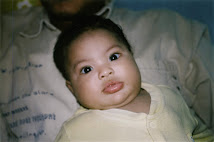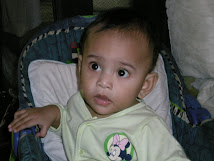Source: Sunday Star, December 16, 2007 Does your daughter need the cervical cancer vaccine? THE other day, one of my patients, a 42-year-old mother, asked me about the new cervical cancer vaccine. I cautioned her that the vaccine would be less effective for her at her age, but suggested instead that she get her two teenage daughters vaccinated. Why couldn’t they be vaccinated when they were older, she asked. I advised her that this vaccine offers the best protection when it is given to girls before they become sexually active. She was concerned about the safety of giving a vaccine to teenage girls, but I assured her that the vaccine is safe even for girls as young as nine. When this vaccine was approved in Malaysia in 2006, it came as great news for women, who will now have better protection against cervical cancer, for themselves and their daughters. However, some people have tried to turn this into an issue about sex. They say that giving the vaccination to young girls is like giving these girls permission to have sex. Not only is this view factually wrong, it is also denying women the right to a medical development that can save their lives. As a doctor and a mother myself, I urge everyone to stop thinking about this vaccine as anything to do with sex, and everything to do with eradicating cervical cancer. How the vaccine works The main cause of cervical cancer is the human papillomavirus (HPV), of which there are more than 100 different strains that can also cause other conditions like warts. So far, we know that about 10 of these HPV strains are linked to cervical cancer. These types of HPV are transmitted through sexual intercourse. It is actually very common for men and women to be infected with HPV at some point in their lives when they become sexually active. It has nothing to do with sexual promiscuity, and most of the time, the infection goes away on its own without causing cancer or requiring treatment. But if the infection causes pre-cancerous cells to develop, this could lead to cancer. Fortunately, now that there is a vaccine, women will have even better protection against the virus. The vaccine that was approved last year protects women against four different types of HPV – two types that cause 70% of all cervical cancers, and two types that commonly cause genital warts (the types are HPV-6, HPV-11, HPV-16, and HPV-18). This particular vaccine will not completely prevent cervical cancer because there are other types of HPV it does not protect against. However, in the future, there may be newer vaccines that can protect against the other types of HPV as well. As this is a new vaccine, we don’t know how long the effects of the vaccine will last. Currently, studies show that it offers protection for at least four years. Who should be vaccinated? The vaccine is most effective in women who have not been exposed to HPV before. In other words, women who are not sexually active – the most likely group being preteen and teenage girls. In the US, the vaccine is recommended to be given routinely to girls at age 11 or 12. Malaysia does not necessarily have to follow in the footsteps of Western countries, where girls become sexually active at a younger age. As a parent, you should discuss this vaccine with your daughter and your family doctor or gynaecologist and make the decision together. Whether it is at age nine, 12 or even 26, girls should be given this vaccine before they become sexually active. Here are some questions that women and parents of young girls frequently ask: What is the most suitable age range for vaccination? The vaccine can be given to girls as young as age nine, and the recommended age range is between 13 and 26. How many shots of the vaccine are needed? There are three doses of the vaccine to be given over six months. You must get all three doses within this timeframe, so that the vaccine will be effective. What are the side effects of the vaccine? The vaccine is safe and generally well tolerated. Some side effects that you may experience include pain, swelling, itching and redness at the injection site, and fever. A very rare side effect is difficulty breathing – if you experience this, seek medical help immediately. Do I still need Pap smears? Yes, every woman who has been vaccinated still needs to have regular Pap smears. This is very important because the vaccine does not protect against all causes of cervical cancer, or you may already have been infected with HPV before you were vaccinated. Pap smear can detect cancer and pre-cancerous lesions early, so that they can be treated before developing into cancer. Can the vaccine cure HPV infection or cervical cancer? No, it does not treat the infection or the cancer. If you have HPV or signs of cervical cancer, get your doctor’s advice for the appropriate treatment. Do I still need the vaccine if I am already sexually active or have previously been infected with HPV? The vaccine is still beneficial for you, because you may have been infected by other HPV types. Therefore, it can protect you against the four HPV types contained in the vaccine. However, it will not be able to protect you against HPV types that you have already been exposed to. Can I be vaccinated if I am pregnant? No, the vaccine is not recommended for pregnant women. Can this vaccine protect me from other diseases? No, the vaccine can only protect you from the diseases caused by the four HPV types it contains. It will not protect you from other sexually transmitted diseases! Therefore, it is very important to still practise safe sex. The ‘sex’ issue This vaccine does not give anyone a free license to have unsafe sex or be promiscuous. Let us remember that it only protects against a few types of HPV; it does not protect against HIV or other sexually transmitted diseases. Let us remember that it is not a form of birth control and will not protect against unplanned pregnancies. But what it can do is provide a great deal of protection against most cervical cancers. So let’s not deny our daughters a chance to say “no” to cervical cancer.
“YA ALLAH, AKU BERLiNÐUNG KEPAÐAMU ÐARiPAÐA PERASAAN SEÐiH ÐAN ÐUKACiTA, AKU BERLINÐUNG KEPAÐAMU ÐARiPAÐA LEMAH ÐAN MALAS, AKU BERLiNÐUNG KEPAÐAMU ÐARiPAÐA BAHKiL ÐAN PENAKUT ÐAN AKU BERLiNÐUNG KEPAÐAMU ÐARiPAÐA BEBAN HUTANG ÐAN TEKANAN PERASAAN.”
“YA ALLAH, BUKAKANLAH UNTUKKU PiNTU-PiNTU KEBAiKAN, PiNTU-PiNTU KESELAMATAN, PiNTU-PiNTU KESiHATAN, PiNTU-PiNTU KENiKMATAN, PiNTU-PiNTU KEBERKATAN, PiNTU-PiNTU KEKUATAN, PiNTU-PiNTU CiNTA SEJATi, PiNTU-PiNTU KASiH SAYANG, PiNTU-PiNTU REZEKi, PiNTU-PiNTU iLMU, PiNTU-PiNTU KEAMPUNAN ÐAN PiNTU-PiNTU SYURGA, YA ALLAH YANG MAHA PENGASiH LAGi MAHA PENYAYANG.”
Rabu, Januari 30, 2008
To vaccinate or not?
Susunan :
Bawang Goreng
pada
1/30/2008 05:58:00 PTG
Langgan:
Catat Ulasan (Atom)
















































0 KOMEN:
Catat Ulasan
Kongsikan komen anda di sini...